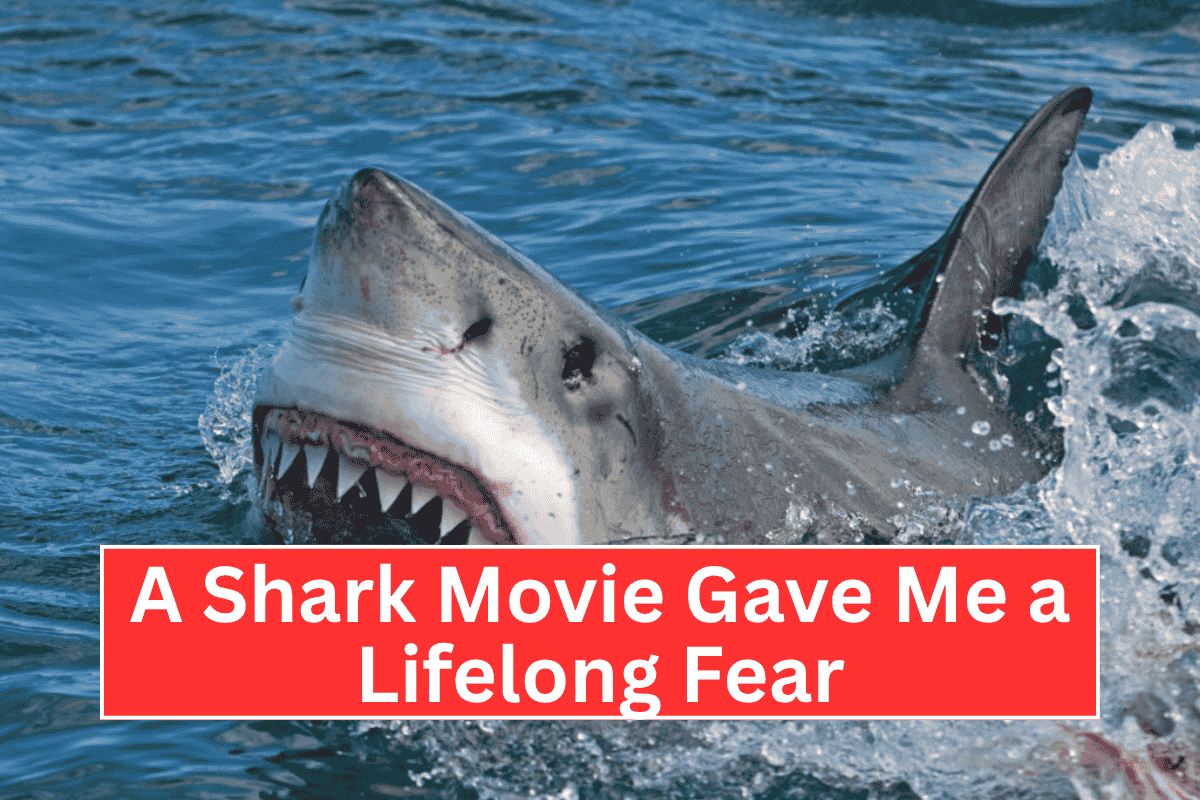It’s been 50 years since Jaws hit theaters and forever changed the way many of us see the ocean. For one moviegoer, watching Jaws on opening weekend in 1975 not only created an unforgettable movie memory but also left a lasting fear that has never gone away.
What started as a thrilling summer film became a lifelong reminder that fear can come from where you least expect it—whether from a shark or from something deeper.
The Movie That Changed Everything
It all started in a crowded theater in South Jersey, right around Cherry Hill. Two friends, excited by the buzz around Jaws, grabbed tickets for its opening weekend.
They had read the book but weren’t expecting much. Still, director Steven Spielberg—just 26 years old at the time—had already shown his talent with Duel, and this movie felt like it could be something special.
And it was. The film turned out to be thrilling, terrifying, and even funny. It was a game-changer for movies and created the idea of the “summer blockbuster.” But beyond Hollywood, it left personal marks too.
A Fear That Never Left
Since that summer evening, the writer has never felt safe venturing into the ocean. Even shallow waters stir up thoughts of lurking danger. That now-famous shark theme by John Williams? It plays in their head like a warning siren. And strangely enough, the fear doesn’t end at the beach—swimming pools, too, bring back that feeling of unease.
Why? Maybe it’s the way Spielberg kept the shark hidden, building suspense with camera angles and underwater shots. That moment when the shark’s head pops out of the water near the boat? It still sends chills down spines.
The Symbolism Behind the Fear
Jaws was more than a movie about a shark. It was about fear—especially the kind you can’t see coming. From death and the unknown to helplessness, the movie taps into something primal. Some viewers, including the author, see the shark not just as an animal but as a symbol for that deeper, quiet dread that we all carry.
It echoes in other stories too: Moby Dick, Double Indemnity, Open Water, and even The Hunting of the Snark. But none of them hit quite like Jaws, with its clever use of space, silence, and sudden terror.
Real Fear, Real Loss
The article takes a surprising turn at the end. The author wanted to reconnect with Raymond—the friend they saw Jaws with all those years ago. But before they could reach out, they discovered he had passed away in a storm a month earlier.
It’s a powerful reminder: while we fear rare dangers like sharks, real-life losses like missing a chance to reconnect can be more painful—and more likely.
Jaws may have been just a movie, but its impact went far beyond the screen. For many, it redefined fear. For the author, it created a lasting aversion to the ocean—and an even deeper awareness of life’s true fragility. Maybe fear isn’t just about danger. Maybe it’s about love, memory, and the moments we never get back.
So yes, Jaws ruined the beach. But in doing so, it taught us how powerful stories can be—and how sometimes, the scariest things aren’t in the water, but in the spaces between people.












